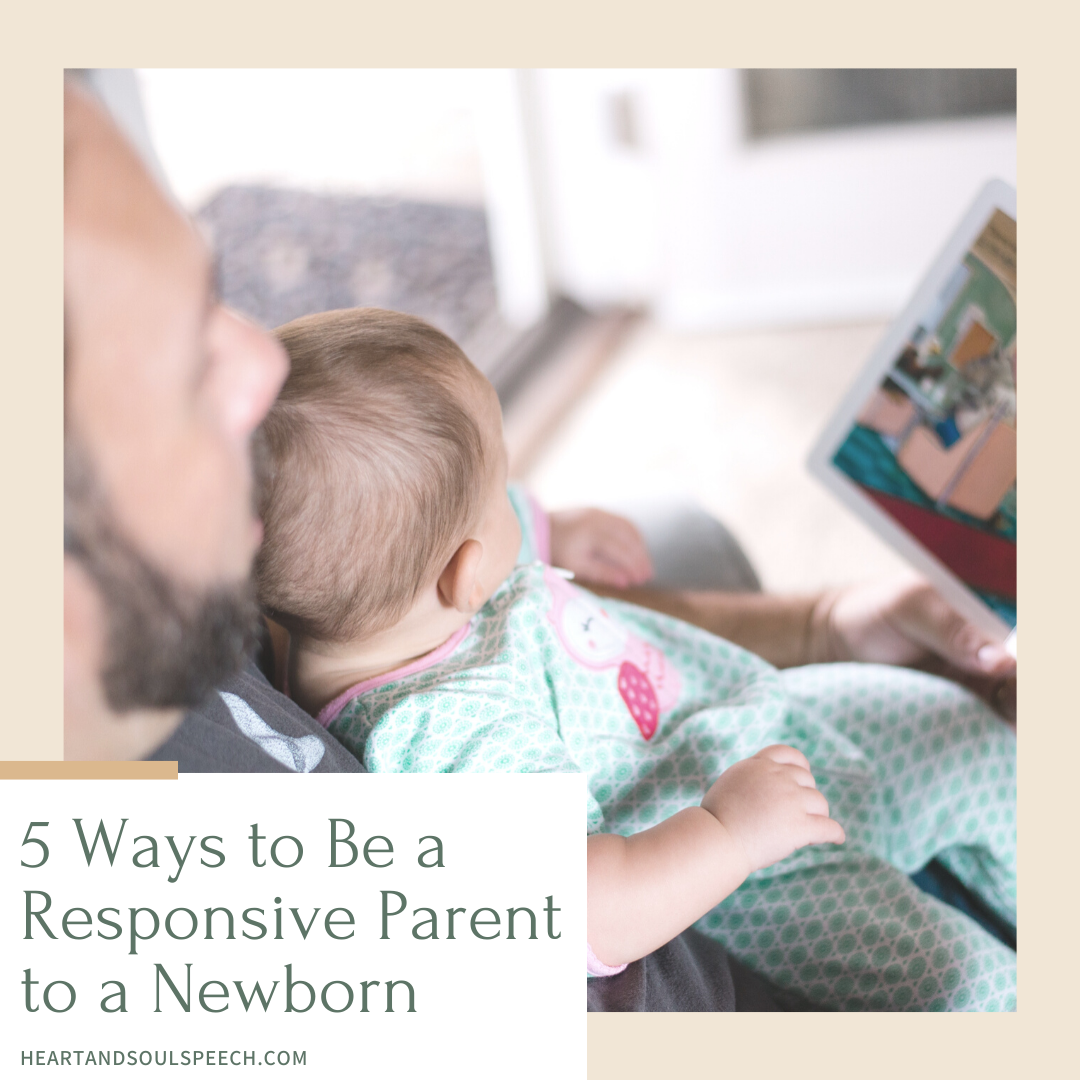
Responsive parenting (also called “sensitive” or “gentle” parenting) views young children as capable and independent beings and respects their developing autonomy. One of the leaders of responsive parenting with newborns is Magda Gerber, founder of the RIE philosophy. She teaches “respect and trust in the baby to be an initiator, an explorer, and a self-learner.”
Babies have been viewed as essentially just a bump on a log, without the ability to think or reason, bound by reflexes, and only filled with the need to eat, sleep, and cry. But I prefer to assume babies are born fully human and deserving of respectful communication. Research has shown the baby brain is actually very capable of making new neural pathways, learning and connecting information over a short amount of time.
One study indicates “increased maternal responsiveness facilitated greater growth in target infants’ social, emotional, communication, and cognitive competence” (Landry et al, 2006). Research also shows children develop better problem-solving ability and attention skills when caregivers are responsive (Landry et al, 2006, Yousafzai et al, 2016). Essentially, caregivers who appropriately respond to their baby increase brain development.

Infants who perceive their caregivers as connected and responsive feel more secure in their being. This becomes the foundation for discipline and learning later in life. We shouldn’t wait until babies are walking, talking toddlers to foster relationships. Babies are born ready to connect with us. It’s our job to nurture that relationship using respectful and responsive communication.
Here’s 5 ways to be a responsive parent to a newborn:
-
Take time to observe and learn from your baby
Infants tell us so much when we stop to listen. With careful observation, we can learn the different cries they use to communicate their needs and respond quickly and appropriately.
-
Communicate during caregiving routines
Often, we drag our babies through the daily routines without much consideration of how they may feel. Talking them through what is happening to them during diapering, feeding, or bathing is respectful and can help them learn routines and build trust in us.
-
Respect their needs
The infant’s sleep and eating patterns are considered equally important in the daily family routine when using responsive parenting. Caregivers allow time for uninterrupted play and freedom to explore, which is important to a baby’s cognitive development.
-
Respond to baby with love, consistency, and kindness
You’ve probably heard that it’s impossible to spoil a baby. Responsive parenting practices empathy by always offering affection and comfort to an upset baby to help them feel safe and secure.
-
Acknowledge all children are individual and unique people
As we observe our baby, they are learning from our actions too. We are their models of relationships, kindness, patience, and respect. As Janet Lansbury said, “they’re learning about themselves, their abilities and their worth, and their place in our hearts and in the world.” They need us to support them as they grow.
Landry SH, Smith KE, & Swank PR. 2006. Responsive parenting: establishing early foundations for social, communication, and independent problem-solving skills. Dev Psychol. 42(4):627-42.
Yousafzai AK, et al, 2016. Effects of responsive stimulation and nutrition interventions on children’s development and growth at age 4 years in a disadvantaged population in Pakistan: a longitudinal follow-up of a cluster-randomised factorial effectiveness trial. Lancet Glob Health. 4(8):e548-58.

One Response